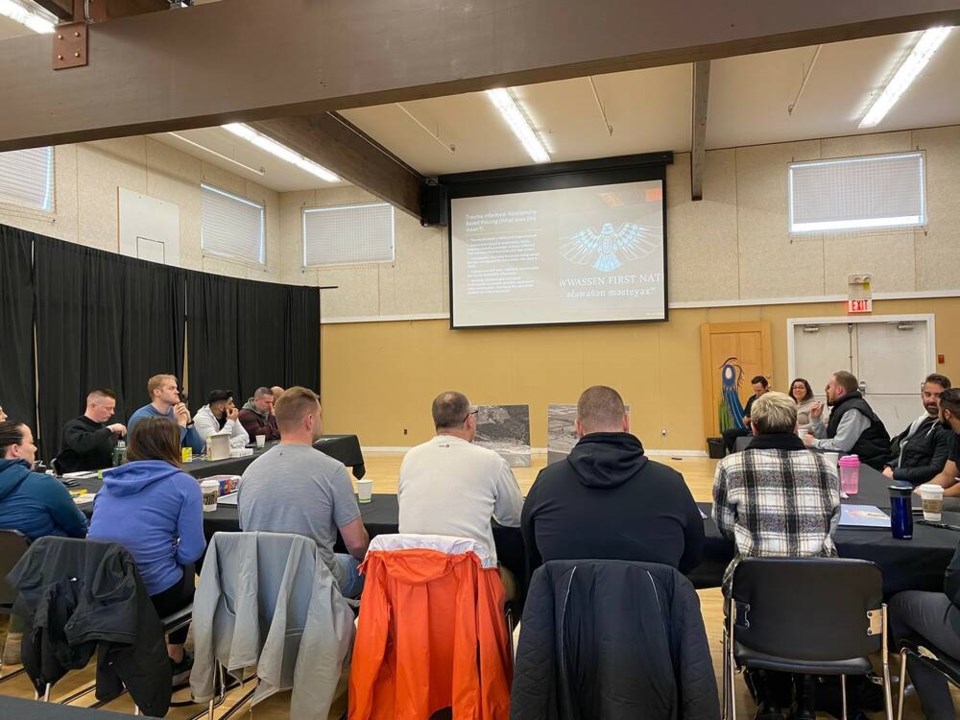Since 2006, Tsawwassen First Nation (TFN) has contracted the Delta Police Department (DPD) to provide policing services on Tsawwassen Lands.
In this time, the TFN Government and DPD have worked together to develop a relationship that is collaborative with TFN leadership guiding DPD’s work to increase community safety on Tsawwassen Lands.
In 2018, the Tsawwassen First Nation Service Team (TFNST) was developed, consisting of officers dedicated to respecting Tsawwassen culture and incorporating community-based policing practices to best serve the Tsawwassen people. As a part of this ongoing relationship building, TFN provided training for the entire DPD through a series of eight half-day sessions. The training included a session on Indigenous history in Canada, outlining the traumatic history of Indigenous peoples with law enforcement, and highlighting ways to move forward together in reconciliation.
The training also focused on Tsawwassen-specific culture, protocols and history, including information on traditional lands and ways of living and the showcasing of artifacts from Tsawwassen traditional territory, with some artifacts radiocarbon dated to approximately 2,000 to 2,300 years ago.
The training also included an overview of the Tsawwassen First Nation Treaty and governance structure and explained the importance of cultural protocols in conducting government business.
Tsawwassen trainers highlighted how far the relationship between DPD and TFN has come, noting the efficacy of the joint model of trauma-informed policing as well as collaborations with the Health and Social Services team at TFN to provide wholistic solutions to community safety issues. These relationships between DPD, TFN’s Health and Social Services staff remain imperative as they aim to address the root causes of client interactions with justice systems to reduce recidivism and promote healing, rather than subjecting Tsawwassen members to punitive colonial justice models.
After the training sessions, DPD officers were then taken on a tour of Tsawwassen territory and shown TFN’s boundary marker poles, development lands, and culturally and archaeologically significant areas.
The training was hugely successful as a way of continuing to build community capacity, cultural competence, and knowledge of partners working with Tsawwassen First Nation as a reconciliation relationship practice.



